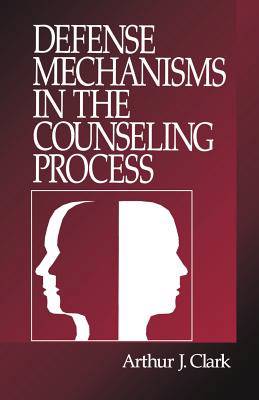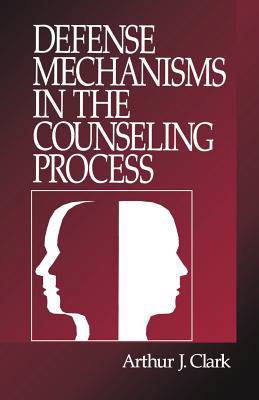
- Afhalen na 1 uur in een winkel met voorraad
- Gratis thuislevering in België vanaf € 30
- Ruim aanbod met 7 miljoen producten
- Afhalen na 1 uur in een winkel met voorraad
- Gratis thuislevering in België vanaf € 30
- Ruim aanbod met 7 miljoen producten
Zoeken
€ 300,95
+ 601 punten
Uitvoering
Omschrijving
What causes clients in therapy to resist change? What mechanisms and devices do they use to defend against therapeutic progress? How can a therapist identify and work with such defenses in their clients? Understanding defense mechanisms is essential to understanding clients, managing resistance, clarifying conflicted behavior, and engendering more adaptive functioning. In Defense Mechanisms in the Counseling Process, author Arthur J. Clark discusses various specific defense mechanisms that arise in the course of working with a client in counseling. He presents each mechanismÆs theoretical origins, psychopathology, and definitionsùand then the methods (organized according to the three-stage model of the counseling process) for "processing" it through discrete stages. Extensive examples throughout the book from diverse populations illustrate the defense mechanisms themselves, as well as the therapeutic change that can result in spite of them. He also provides an integrative case example, demonstrating the changes in clientsÆ defenses through the counseling process. Combining a theoretical and practical perspective, Defense Mechanisms in the Counseling Process is ideally suited for professionals and academics in clinical and counseling psychology, psychology, social work and group work.
Specificaties
Betrokkenen
- Auteur(s):
- Uitgeverij:
Inhoud
- Aantal bladzijden:
- 272
- Taal:
- Engels
Eigenschappen
- Productcode (EAN):
- 9780761906612
- Verschijningsdatum:
- 24/03/1998
- Uitvoering:
- Paperback
- Formaat:
- Trade paperback (VS)
- Afmetingen:
- 141 mm x 216 mm
- Gewicht:
- 353 g

Alleen bij Standaard Boekhandel
+ 601 punten op je klantenkaart van Standaard Boekhandel
Beoordelingen
We publiceren alleen reviews die voldoen aan de voorwaarden voor reviews. Bekijk onze voorwaarden voor reviews.











